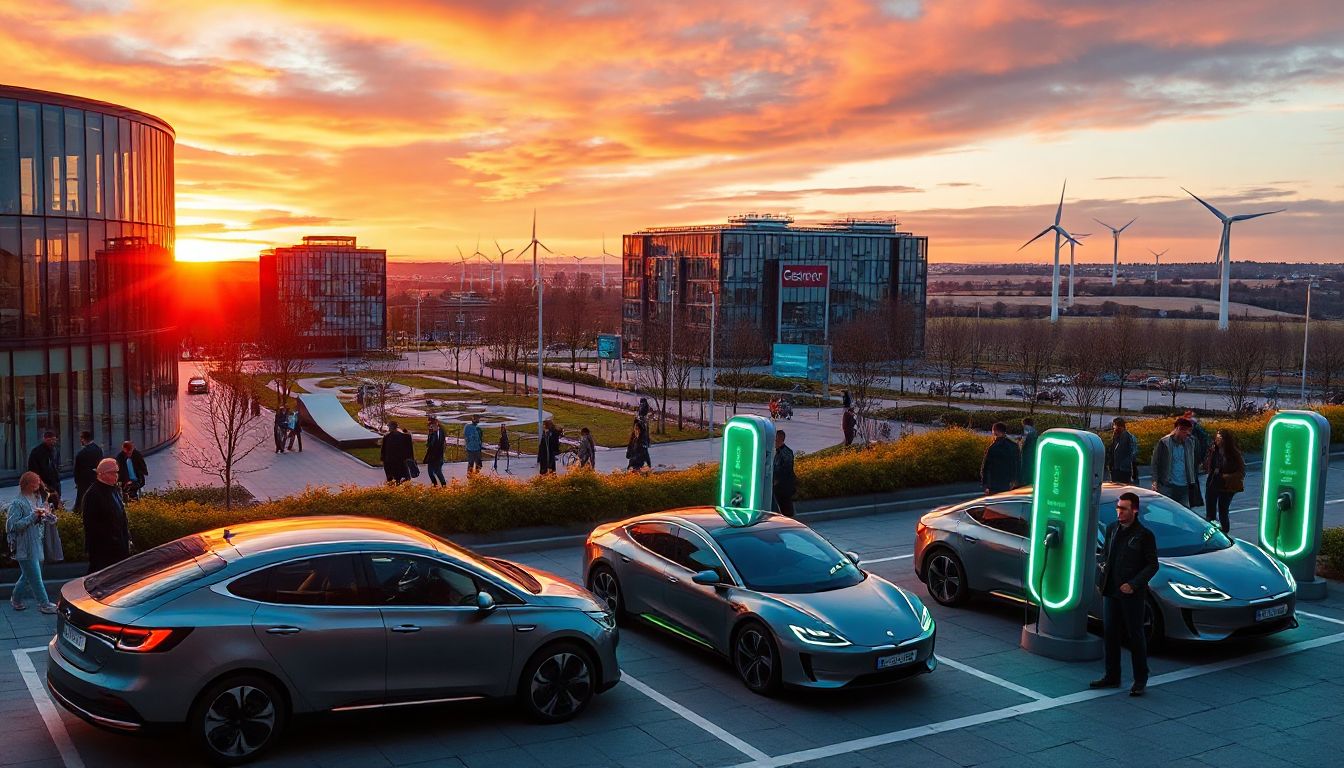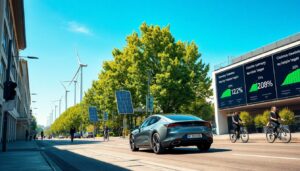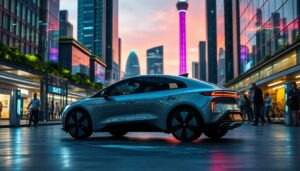Introduction
Germany stands out as a top name in the world of cars. Not just for traditional engines, but for electric vehicles (EVs) too. As more people grow concerned about climate change, the demand for clean, eco-friendly rides skyrockets. Government rules and green goals push manufacturers to develop smarter, better EVs. Germany’s own car makers lead this charge, aiming for a greener future. This article explores the main companies, rising trends, and the road ahead in German EV markets.
Overview of the German EV Market
Current Market Size and Growth Trends
Germany’s EV scene is booming. Last year, over 600,000 electric cars hit the roads – a big jump from previous years. Experts believe that by 2030, almost half of all cars sold in Germany will be electric. This rapid growth shows how eager consumers are to switch to cleaner vehicles.
Government Policies and Incentives
Germany rolled out strong policies to make EVs more appealing. These include grants, tax breaks, and subsidies for buyers. The German government also invests heavily in building charging stations across the country. Faster charging networks help EV owners feel more confident on long trips, reducing worries of running out of power.
Consumer Preferences and Challenges
Buyers want EVs that run longer on a charge and are easy to recharge. But obstacles remain. Many worry about the car’s range, or the lack of enough charging points. Still, as networks grow and models improve, these concerns are gradually fading away.
Major Electric Vehicle Companies in Germany
Volkswagen Group
Volkswagen is the giant in German EV production. Its ID. series, including the ID.3 and ID.4, has gained global fame. The company invests billions in factory upgrades and new battery tech. Today, VW’s market share in EVs continues to climb, competing fiercely worldwide.
BMW Group
BMW offers sleek, high-performance EVs like the i3, i8, iX, and i4. Its approach combines luxury with electric power. BMW also partners with tech firms to develop smarter, connected cars. Their focus is on delivering premium EVs for buyers who want style and sophistication.
Mercedes-Benz (Daimler AG)
Mercedes elevates class and comfort in the EV world. Popular models like EQC, EQB, and EQS pack luxury and tech into each vehicle. Mercedes plans to make all their models electric or plug-in hybrids soon. They aim to lead in combining high-end features with eco-friendly driving.
Other Notable Players
Opel and Vauxhall released models like the Opel Mokka-e, attracting many new buyers. Ford Germany invests heavily in electric models, pushing for bigger market share. Startups and collaborations also add fresh ideas, making Germany’s EV industry vibrant and competitive.
Emerging Trends and Technologies in German EV Industry
Battery Innovation and Sustainability
Battery tech advances fast. Solid-state batteries promise longer range and faster charging. Recycling efforts ensure less waste and lower environmental impact. German firms aim to make batteries that last longer and are easier to reuse.
Charging Infrastructure Expansion
Ultra-fast charging stations are multiplying. Many are located along highways and city centers, making charging quicker and more convenient. Public-private partnerships accelerate infrastructure buildout to support mass EV adoption.
Autonomous and Connected Vehicles
German companies push for smarter cars. These EVs include autonomous driving features and real-time updates. Software improvements mean your car can learn and adapt, making driving safer and smoother.
Sustainable Manufacturing Practices
Germany’s factories strive to be greener. Many use renewable energy like wind or solar. Firms are also focusing on rechargeable batteries’ lifecycle, from manufacturing to recycling, to cut waste and pollution.
Challenges Facing German EV Companies
Supply Chain Disruptions
The global shortage of chips hit German EV makers hard. Raw material sourcing is also tricky, leading to delays. These issues slow down production, affecting supply and prices.
Competition from International Players
Tesla’s popularity keeps growing, and Chinese brands like BYD challenge German firms on price and technology. Staying ahead in innovation is becoming more crucial than ever.
Regulatory and Market Uncertainties
Rules and standards are always changing in Europe. Consumer interest varies, and market readiness differs across regions. Companies need to stay flexible and adapt quickly to succeed.
Future Outlook and Opportunities
The German EV market looks bright. It is set to grow fast, especially with emerging markets and export prospects. Innovation in battery and software tech will keep German firms competitive. Policymakers and companies should work together to overcome obstacles and push for a cleaner, more efficient mobility future.
Conclusion
Germany remains a global hub for electric vehicle innovation. Big brands like VW, BMW, and Mercedes turn ideas into inspiring cars. New trends in batteries, charging, and automation keep the industry moving forward. Challenges persist, but the future of Germany’s EV industry is promising. For consumers, investors, and policymakers alike, now is the time to support sustainable mobility—Germany’s continued leadership depends on it.




